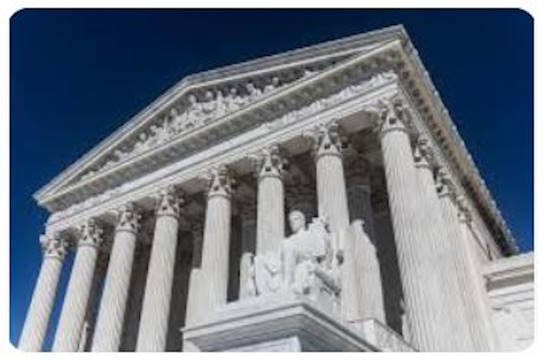
MI Responds: SCOTUS Rulings on Grants Pass Case and Overturning Chevron
By Senior Fellows: Ilya Shapiro, James R. Copland & Judge Glock
New York, NY – This morning, June 28th, the Supreme Court issued decisions on several cases, including Loper Bright Enterprises v. Raimondo and City of Grants Pass v. Johnson.
Ilya Shapiro, senior fellow and director of constitutional studies at the Manhattan Institute, on Loper Bright Enterprises v. Raimondo:
“Good for the Court to recognize that its 40-year-old experiment in rebalancing the relationship between administration and judicial review has failed. Chevron led to agency overreach, haphazard practical results, and the diminution of Congress. Although intended to empower Congress by limiting the role of courts, Chevron instead empowered agencies to aggrandize their own powers to the greatest extent plausible under their operative statutes, and often beyond. Courts, in turn, have become lazy in interpreting statutes. It’s a vicious cycle of legislative buck-passing and judicial deference to executive overreach. As I wrote in our brief, Chevron deference rests on the presumption that Congress won’t over-delegate and that agencies will be loyal agents. But experience has shown that Congress loves avoiding accountability and agencies love pursuing their own interests. In short: Chevron is dead! Long live judicial review!”
James R. Copland, senior fellow and director of legal policy at the Manhattan Institute, on Loper Bright Enterprises v. Raimondo:
“In grade school, we learned that the laws are enacted by the legislature, enforced by the executive, and interpreted by the judiciary. But in modern America, as I chronicled in my 2020 book The Unelected, all three functions have often been concentrated in the executive branch. Without any new enactment of Congress, federal agencies have shifted rules depending on which party controls the White House—and the judicial branch has deferred to those same agencies’ shifting interpretations of unchanged statutory language. That judicial deference had rested on a 1984 Supreme Court precedent, Chevron v. Natural Resources Defense Council, which generations of law students learned was the most important legal decision in the modern era. But the Supreme Court itself has not invoked Chevron to justify an agency’s statutory interpretation since 2016; and today, Chevron is no more, expressly overruled in Loper Bright Enterprises v. Raimondo. Despite commentators’ hand wringing, today’s case will not (alas) cripple the massive federal regulatory state. But, thankfully, the meanings of the words in the laws Congress enacted years ago will no longer change based on the outcomes of presidential elections.”
Read the Manhattan Institute’s amicus brief in Loper Bright Enterprises v. Raimondo here.
Read additional commentary from Andy Smarick, senior fellow, here:
Populism and the Administrative State (American Habits, June 2024)
Chevron’s End is Near! Yawn, sigh. (Governing Right, May 2024)
Judge Glock, senior fellow and director of research, on City of Grants Pass v. Johnson:
“The opinion by the Supreme Court in the Grants Pass v. Johnson case recognizes the failure of the 9th Circuit’s attempt to manage local homeless policies in the Western United States. As Justice Neil Gorsuch points out, the 9th Circuit’s argument that bans on public sleeping and camping were unconstitutional had no basis in America’s constitutional text or tradition. The 9th Circuit’s ruling also involved courts in difficult questions of public policy that they had no business supervising. The Supreme Court appropriately restored decisions about homeless policies to state and local governments, where they belong.”
Read the Manhattan Institute’s amicus brief in City of Grants Pass v. Johnson here.
Please direct any media inquiries to director of media relations Nora Kenney at nkenney@manhattan.institute.
From manhattan.institute